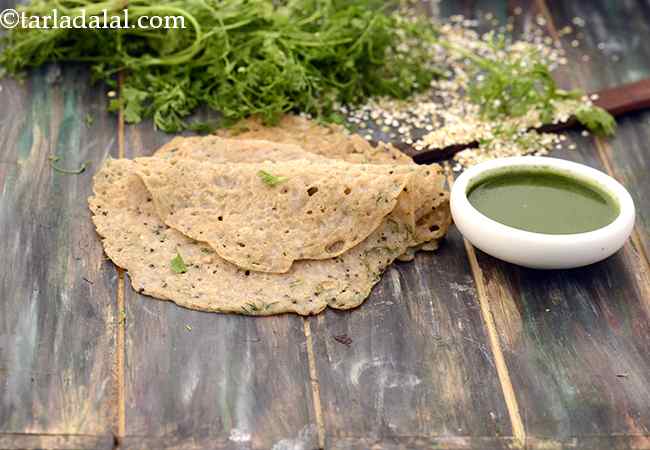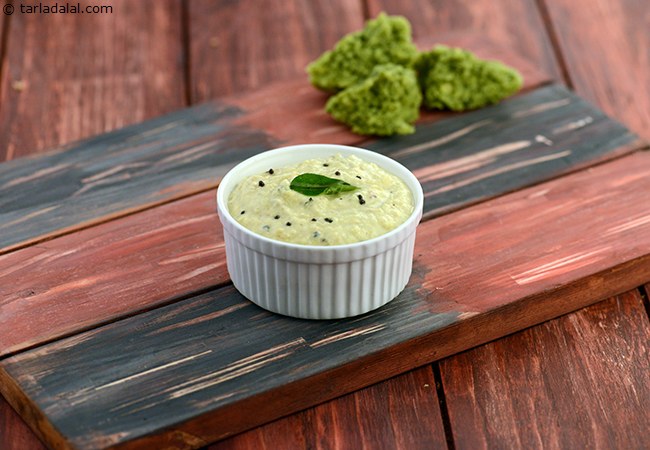Click here to view Masala Appe. Quick and easy snack made with idli batter, the Masala Appe is worth calling as Magic Appe, because it’s superb texture and amazing flavour make it a great hit with everybody. Masala paniyaram, this South Indian evening snack made with idli batter which can be served for high tea, snacks or breakfast.
Something that combines convenience and taste is always a welcome addition to our knowledge bank! All you need to do is perk up leftover idli batter with a horde of common ingredients like onions, green chillies, ginger, and so on, and cook the batter in appe moulds. As we have used ready made batter, we have made Masala paniyaram in no time and also very easily.
Making masala appe is not at all difficult rather it is very simple. To make masala appe, take idli batter in a bowl. Add onions to it. If you wish to make it more colorful and nutritive add vegetables like cabbage, carrot, french beans or any that you wish to. Further, add green chillies which can be adjusted according to your preference of spice. Next, add asafoetida and also add curry leaves which will provide a strong aroma and unique flavor to our masala paniyaram. Add coconut which is extensively used in South Indian food and also had its own health benefits and it is a super food. Lastly, add red chilli powder, ginger paste and season the batter and mix everything well. Next, to proceed heat an appe mould on a medium flame and grease it using ¼ tsp of oil. Pour 1 tbsp of the batter into each mould. Cook, using ½ tsp of oil, till the lower surface becomes golden brown and then turn each appe upside down using a fork so as to cook them from the other side. Repeat with the remaining batter to make more appes. Serve masala appe immediately with coconut chutney.
Like masala appe, then enjoy our other South Indian recipes like Masala Vadas and Medu Vada. Make sure you serve this tongue tickling masala appes immediately or they will turn soggy. See our collection of South Indian appe recipes.
Is Masala Appe, Masala Paniyaram healthy ?
Yes and no, depends who is eating this? Made from urad dal, par boiled rice, poha, onions, coconut and methi.
Let's understand the Ingredients.
What's good.
Urad Dal : 1 cup of cooked urad dal gives 69.30% of folic acid of your daily requirement of folate. The folic acid in urad dal helps your body to produce and maintain new cells, especially red blood cells. Being rich in Phosphorus it works with Calcium to build our bones. See here for 10 super benefits of urad dal.
Onions (pyaz, kanda) : Raw onions are a very valuable source of vitamin C – the immune building vitamin. Along with other phytonutrients from onions, it helps to build WBC (white blood cells) which serves as a line of defence against illness. Yes, it’s a source of many antioxidants, the most important one amongst them being Quercetin. The quercetin in Onions promotes production of HDL (good cholesterol) and lowers total cholesterol in the body. The sulphur in onions act as a blood thinner and prevents blood clotting too. This in turn would lower blood pressure and good for heart, diabetics. Read the benefits of onions.
Coconut : The fresh coconut has saturated fats but most of it is MCT (Medium Chain Triglycerides) which promote weight loss. The high fibre content 13.6 gm (45.3% of RDA) along with high lauric acid content of coconut improves cholesterol levels in the body. Improving the action of insulin secretion and lowering the raised blood sugar levels is yet another benefit of coconut for Diabetics. See here for 10 amazing benefits of coconut.
What's the problem in the idli batter?
Parboiled Rice (Ukda Chawal) : Parboiled Rice is also known as ukda chawal. The parboiled rice is made with the rice grain soaked, steamed and dried with the hull and finally the hull is removed. In the process of steaming water soluble B Vitamins like thiamine, riboflavin and niacin from the bran integrate into the grain, thus making parboiled rice superior to white rice. A smart option to use parboiled rice effectively would be to combine with a pulse to get a high quality protein. A cereal-pulse combo like in case of idli (parboiled rice with urad dal) would serve as a complete protein comprising of all the 9 essential amino acids that your body requires. And then to make up for the fiber, add veggies to your idli and serve it with coconut chutney. Read is white rice and parboiled rice good for you?
Poha ( Beaten rice) : Pros for poha. High iron count (2.67 mg in a cup) of poha. Most people prefer eating poha for breakfast. The reason behind it is its high carb count. Poha helps us accomplish nearly 5% of potassium requirement which will control blood pressure and sustain cardiac health and further aids in controlling blood cholesterol too. Cons. Due to high carb content it is not good source of diabetic food. With calories to add along with carbs and not much fiber, poha should logically be constrained by those who intend to lose weight. High protein, less carbs and more fiber should be the target of weight watchers. Read is poha healthy?
Can diabetics, heart patients and over weight individuals have masala appe ?
No, this recipe is not good for diabetics, heart and weight loss. We would like diabetics, weight loss and heart patients avoid par boiled rice.
What are the healthier dosa recipes?
Opt for nachni dosa, quinoa dosa, oats dosa, 4 Flour Dosa recipe, spinach dosa or buckwheat dosa which has ZERO rice used.
 Buckwheat Dosa
Buckwheat Dosa
Serve it with a healthy sambar recipe or coconut chutney. Read which idlis and dosas are healthy?
 Coconut Chutney
Coconut Chutney
Can healthy individuals have masala appe ?
Yes, this is healthy in small amounts. A smart option to use parboiled rice effectively would be to combine with a pulse to get a high quality protein.
A cereal-pulse combo like in case of masala appe (parboiled rice with urad dal) would serve as a complete protein comprising of all the 9 essential amino acids that your body requires. And then to make up for the fiber, add veggies to your masala appe and serve it with coconut chutney.
How to burn 18 calories that come from One Masala Appe?
|
Walking (6 kmph) = |
5 |
mins |
|
Running (11 kmph) = |
2 |
mins |
|
Cycling (30 kmph) = |
2 |
mins |
|
Swimming (2 kmph) = |
3 |
mins |
Note: These values are approximate and calorie burning differs in each individual.